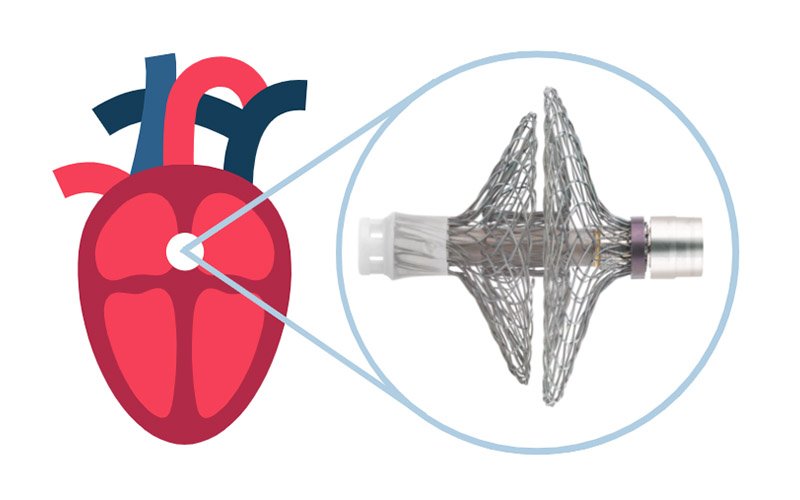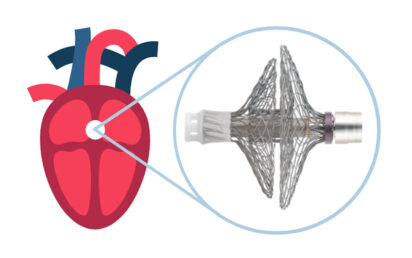A tiny wireless device implanted inside the heart is aiming to improve the lives of chronic heart disease patients.
MedTech business Vectorious has developed the microcomputer – which lives inside the body – and accompanying belt which allows it to send accurate readings directly from inside the heart’s chambers.
It requires its patients to don the high-tech belt for one minute a day, which provides power to the implant and takes pressure readings.
That data is then passed into the cloud and shared with a patient’s clinician, who can adjust medication accordingly.
The method allows patients who would otherwise go into hospital a chance to take their readings at home.
CEO and co-founder Oren Goldshtein leads the firm, which is made up of a combination of high-tech engineers responsible for the chip inside the device and MedTech engineers who have developed the delivery system for the implant.
The Israeli firm is now working with hospitals around the world, with 11 sites in Europe and two in the UK.
The firm started its first human trials in 2019 and has 13 patients. The study will eventually have 30 patients, after which Goldshtein plans to seek clearance from the US Food and Drug Administration (FDA) by the end of next year and launch internationally.
He said the internal, digital device will be the second of its kind to market, and the feedback received so far been “very positive”.
The hearts of patients using the device are unable to supply sufficient blood for the needs of the body, explained Goldshtein. These chronic disease patients have to take medication on a daily basis, and will need to for the rest of their life.
The firm’s device allows for more precise decisions about the medication required.
“The right amount of medication is an enigma for the medical community,” he tells BusinessCloud. “Patients will deteriorate. It’s sad but ideally what you want to do is slow the progression and deterioration of the disease.
“Currently this type of data is only available in hospital settings, meaning that the patient needs to go through a procedure in order to measure the pressure using a catheter.
“Now the data is available in a home setting.”
Goldshtein likened it to diabetes, a condition which is more precisely treatable when those affected can take their own readings via a quick blood test before self-treatment with insulin.
The lifespan of a chronic cardiac patient is about five years, said Goldshtein, and in the elderly population the treatment currently requires visits to the hospital. By giving them back some autonomy, Vectorious hopes to improve quality of life while also increasing lifespan through more precise medication.
The device is fitted via catheter, and implanted inside the wall between the left and right atriums of the heart.
Patients usually stay overnight for this treatment, but Goldshtein said it is a relatively simple procedure and some patients are released almost immediately afterwards.
The hope is that after the procedure, patients won’t need to return as quickly.
Goldshtein explains: “If the [heart] pressure increases, then they can adjust medication. By doing so you will prevent further deterioration and pulmonary edema.”
While he is happy call the device a ‘wearable’, Goldshtein says the technology is distinct from consumer health gadgets.
The Apple Watch, for example, can suggest signs of atrial fibrillation – where the heartbeat is irregular and often fast – with a two-point electrocardiogram. He says that while this is positive technology for healthy people, the likes of Apple are not competitors to Vectorious.
Instead the firm’s growth plans remain within the treatment of chronic disease.
“We’re not for healthy people,” he says. “There are various chronic diseases which can gain a lot from specific indication inside the body.”
Longer-term, the firm plans to develop implants for a range of ailments inside the body which, when tracked as closely as heart pressure, lead to better treatment decisions.
“Until now, cardiology has mainly developed elements like stents which are purely mechanical. The next stage for cardiology is to have smart devices.”
He says the next frontier is digital devices inside the body, allowing medical professionals to precisely monitor patients – no matter where they are in the world.


